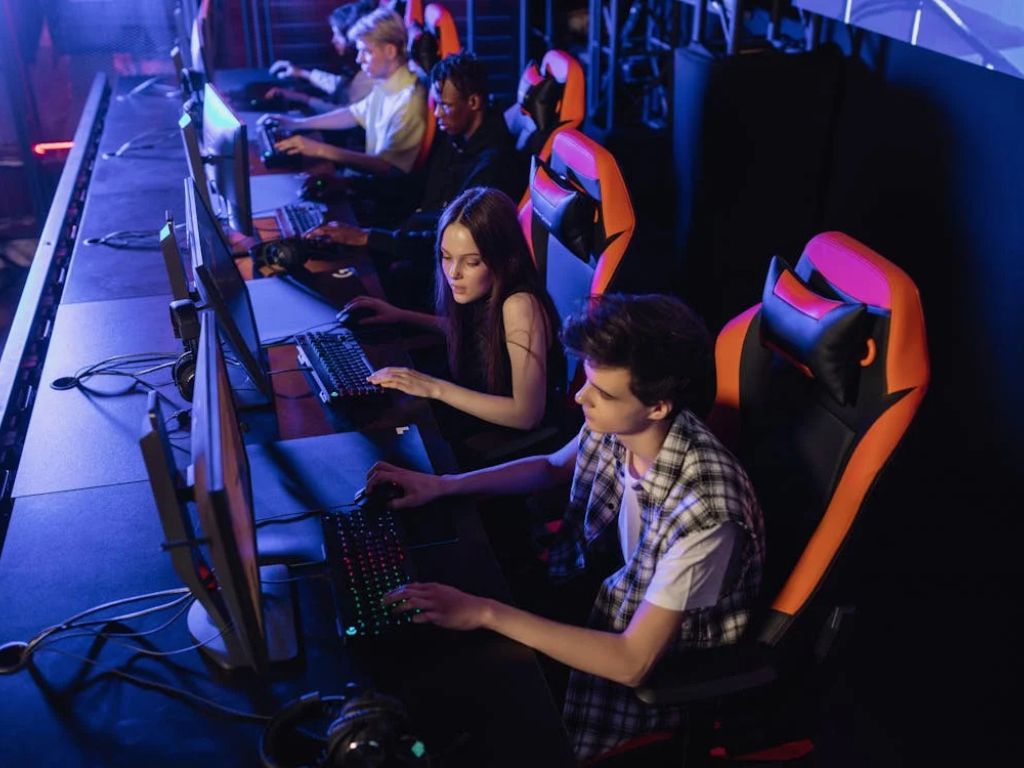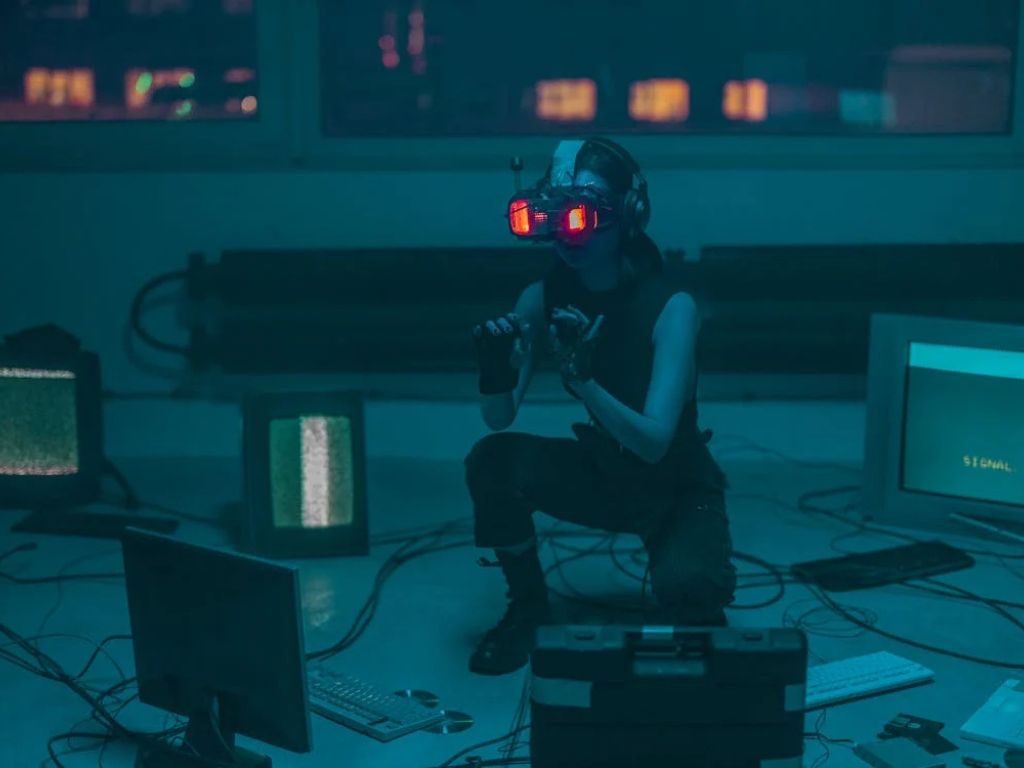The world of online gaming has always been a playground for cutting-edge technology. From the early days of pixelated characters to today’s hyper-realistic virtual environments, gaming has continuously evolved. Artificial Intelligence (AI) is now stepping into the spotlight, transforming online gaming in ways that were once only imagined in sci-fi movies. Let’s dive into how AI technology is making online gaming amazing.
1. Smarter and More Realistic NPCs
Non-player characters (NPCs) are a staple in online games, from quest givers in MMORPGs to opponents in battle royale games. Traditionally, these characters followed predefined scripts, making them predictable and sometimes boring. AI has revolutionized NPCs by infusing them with intelligence and adaptability.
Modern AI-powered NPCs analyze player actions in real time, making their responses dynamic and lifelike. For instance, in games like Red Dead Redemption 2, NPCs react based on how you treat them—remembering your kindness or hostility. This creates immersive narratives where players feel like their decisions genuinely matter.
2. Personalized Gaming Experiences

AI takes personalization to the next level by tailoring games to individual players. Imagine playing an RPG where the story adapts to your playstyle, or an FPS game that adjusts its difficulty based on your skill level. AI analyzes player behavior, preferences, and performance to create a gaming experience that feels unique to each user.
For example, AI in Call of Duty adjusts matchmaking to pair players with opponents of similar skill levels, ensuring balanced and competitive gameplay. Similarly, AI-driven storylines in games like Detroit: Become Human adapt based on your choices, providing countless story permutations and replay value.
3. Enhanced Game Development
Game development is a meticulous and time-consuming process. AI is streamlining this by assisting developers with everything from procedural content generation to bug detection. Games like No Man’s Sky use AI algorithms to create vast, procedurally generated universes, offering players unique environments to explore without manual input from developers.
AI tools also help identify bugs and optimize game mechanics before release. By simulating millions of playthroughs, AI ensures that games are polished and ready for launch, reducing the likelihood of glitches that frustrate players.
4. Revolutionizing Graphics and Animation
AI pushes the boundaries of graphics and animation, making online games visually stunning. With AI-powered tools like NVIDIA’s DLSS (Deep Learning Super Sampling), games now achieve higher frame rates and sharper graphics without overburdening hardware.
In animation, AI helps create realistic character movements and facial expressions. Motion capture, combined with AI processing, generates lifelike characters whose emotions and actions resonate with players. This attention to detail makes online games feel more cinematic and immersive than ever before.
5. Advanced Cheating Detection Systems
Cheating has long plagued online gaming, tarnishing the experience for honest players. AI has emerged as a powerful weapon in the fight against cheaters. By analyzing gameplay patterns, AI can detect anomalies that suggest cheating, such as unnatural aim movements in FPS games or impossible resource generation in strategy games.
Games like Fortnite and Valorant utilize AI-based anti-cheat systems to maintain fair play. These systems not only identify cheaters but also adapt to new cheating methods, staying one step ahead of those trying to exploit the game.
6. Real-Time Voice and Chat Interactions
AI has significantly improved real-time communication in online games. Voice recognition and natural language processing (NLP) technologies enable AI-driven chatbots and virtual assistants to interact with players seamlessly.
For instance, in games like Star Citizen, AI helps manage in-game communications, ensuring smooth coordination between players. Voice modulation powered by AI also allows players to mask their voices, adding another layer of fun and anonymity in multiplayer settings.
7. Dynamic and Evolving Game Worlds
AI enables game worlds to evolve dynamically based on player actions and events. In traditional games, environments remain static unless explicitly programmed to change. AI, however, brings these worlds to life.
For example, AI-driven ecosystems can create weather systems, simulate wildlife behavior, and adapt landscapes based on player interactions. Games like Minecraft use AI to generate infinite terrains, ensuring players always have something new to discover. This constant evolution keeps online games fresh and engaging.
8. Enhancing Social Interaction in Multiplayer Games

AI is transforming social interactions in online games, making them more meaningful and engaging. AI-driven matchmaking ensures that players are grouped with others who share similar interests, playstyles, or skill levels, fostering camaraderie and teamwork.
Moreover, AI moderates toxic behavior in chat and forums by identifying and filtering out offensive language in real time. This creates a safer and more welcoming environment for all players, encouraging positive social interaction.
9. AI as In-Game Opponents
One of the most exciting applications of AI is its role as an opponent. AI bots have evolved from simple obstacles to formidable adversaries that challenge even the most experienced players.
In strategy games like StarCraft II, AI opponents analyze your moves and adapt their tactics accordingly, making every match unique. These AI players are so advanced that they’ve even defeated professional esports players, showcasing their potential as training tools for gamers looking to improve their skills.
10. The Future of VR and AR Gaming

Virtual Reality (VR) and Augmented Reality (AR) are the frontiers of online gaming, and AI is at the core of their development. In VR games, AI creates realistic NPC interactions and responsive environments, immersing players in the virtual world.
In AR games like Pokémon GO, AI-powered algorithms generate virtual creatures that interact seamlessly with the real world. The integration of AI into VR and AR gaming promises experiences that blur the line between the virtual and physical realms.
Final Thoughts
AI technology is revolutionizing online gaming by enhancing realism, personalization, and immersion. From smarter NPCs to dynamic worlds, AI ensures that gaming experiences are not only engaging but also tailored to individual players. As AI continues to evolve, the possibilities for online gaming are limitless, promising a future where games are more amazing than ever.
The next time you log into your favorite game, remember that behind the magic is AI, tirelessly working to make your gaming experience extraordinary. So gear up, gamer—because the future of online gaming is here, and it’s powered by AI!




1 Comment